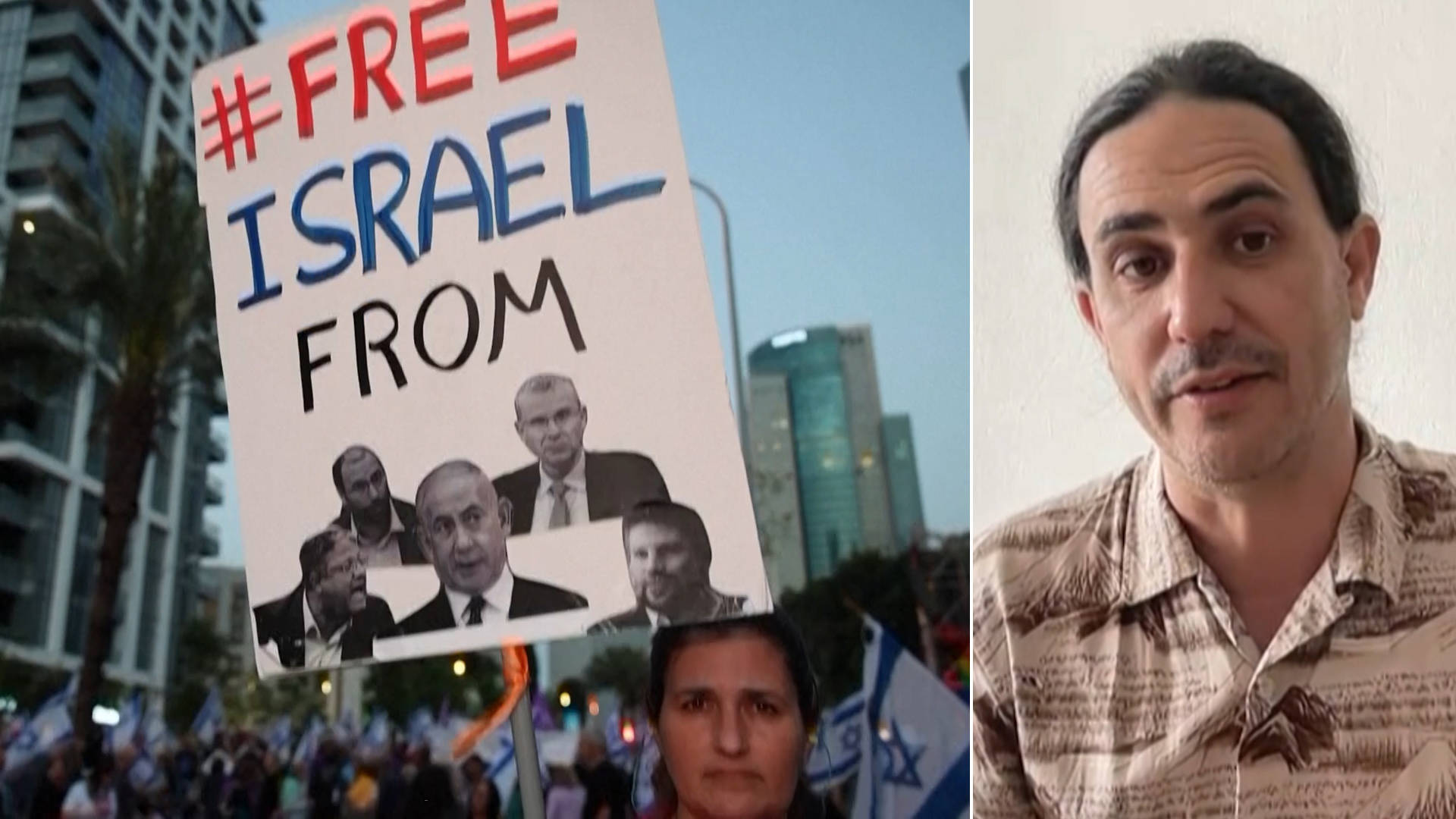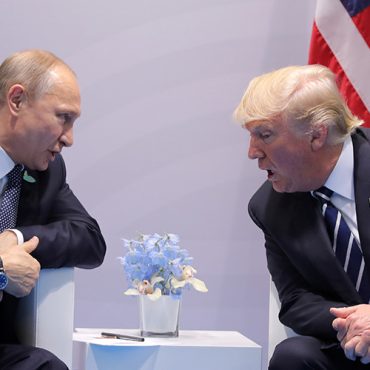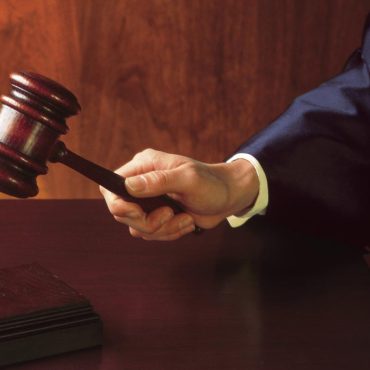This is a rush transcript. Copy may not be in its final form.
AMY GOODMAN: This is Democracy Now! I’m Amy Goodman.
On Sunday, tens of thousands rallied across Israel calling for the ouster of Prime Minister Benjamin Netanyahu in the largest protest since the October 7th attacks. In Jerusalem, police fired skunk spray at demonstrators blocking a major highway. The protesters called for a ceasefire and the release of all hostages. As calls mount for his resignation, Benjamin Netanyahu is now recovering after undergoing hernia surgery Sunday night.
For more, we go to Tel Aviv to speak with Oren Ziv, reporter and photographer for +972 Magazine, who’s been covering the protests, joining us from Tel Aviv.
Oren, welcome back to Democracy Now! It seems that the demands have changed over the last half-year, from the resignation of Benjamin Netanyahu now to his overthrow, to his ouster. Can you talk about — describe these protests across Israel and what people are calling for.
OREN ZIV: Thank you for having me.
We’ve seen those protests before October 7, hundreds of thousands of Israelis against Netanyahu and his government and the legal changes they were leading. After October 7, of course, the Israeli public, the vast majority of it, was in shock and trauma. And many of the center-left protesters were focusing in civilian help inside Israel and also in the struggle to release the hostages. But with the weeks and the months passing, more people felt that even during time of war — and I’m talking from the Israeli mainstream perspective — Netanyahu is just dealing with his own survival, with internal politics, and also he doesn’t want eventually to release the hostages, with delaying the deal. And the common idea among the protesters that I spoke to, dozens of them, is that Netanyahu is delaying the war and dragging the war to save himself politically, that he doesn’t really want to pay the political price to release the hostages, meaning to release Palestinian political prisoners, and therefore, more people are going out.
Secondly, and very interesting, while the mainstream — like, the vast majority of the families of hostages, that have relatives who are held in Gaza, in the beginning they were trying to be nice and polite and have kind of apolitical protests and not to annoy the government so much, because they needed the government to agree on a deal. With time, and as we’ve seen that Netanyahu himself and, for sure, the more extreme ministers declared that releasing the hostages is not more important than defeating or destroying Hamas, more and more families realize that they have to go out to the streets and to protest not just for a general deal or negotiation, but specifically against Netanyahu. They see Netanyahu, and, of course, Ben-Gvir and Smotrich, as the obstacles to release their relatives from Gaza. And this is why on Saturday we saw that the forum that unites many of the hostages’ families declared that they will not make any vigil or quiet gatherings, and they will join the more active families that were blocking roads, lighting fires and doing more direct actions.
And one of the reasons that this is happening is because Netanyahu and the people around him — in general, the right — was inciting against these families, saying that they should be silent, saying they’re serving Hamas by protesting, connecting between them and the anti-government protesters, although not all of them were center-left. But with this incitement against them, Netanyahu actually pushed them to unite with the anti-government protests.
AMY GOODMAN: If you can talk about what the protesters are saying about the future of the occupation? And also, we rarely hear that there’s been this vigil outside of the military intelligence headquarters in Tel Aviv, led by the hostage families, demanding that their loved ones be released and that the Israeli government work towards that and prioritize that.
OREN ZIV: So, yes, from the beginning of the war, from days after the war began, you had a small group of radical left-wing activists protest against the war, for ceasefire, saying this, the massacre against Palestinians, cannot continue, and also mentioning, of course, that in order to release the hostages, the war has to end and there has to be a ceasefire and a deal. This is a few hundreds of people that have been attacked and arrested by the police, while the mainstream public, their opinion is more complicated. Many of them support the war generally, but think that now the only way to release the hostages is a deal. But with time, more and more of them understand that also Netanyahu doesn’t have a plan for the day after, regardless the horrific things, the killings in Gaza and the massacre. Netanyahu doesn’t want to plan anything ahead. He doesn’t want Hamas to be there. He doesn’t want the PA to be there. He doesn’t want any kind of a Palestinian authority in Gaza.
And with that understanding, many people understand that Netanyahu just wants to stay in this status of war maybe forever. Then he doesn’t have to bring the hostages. To release the hostages, he has to pay a political price, to release Palestinian prisoners. This can endanger his coalition with Ben-Gvir and Smotrich and the other extreme-right-wing figures who oppose any release of Palestinian political prisoners. So, with time, you do hear — so, people are calling for ceasefire and for a deal, but from an internal Israeli perspective of releasing the hostages and thinking about the day after, unless from the perspective we’re seeing abroad, of just calling to end the massacre in Gaza.
AMY GOODMAN: And finally, we just have about 30 seconds. We last talked to you where that thousands of Israelis gathering, with Smotrich and Ben-Gvir calling for Jewish settlements in Gaza, etc. Do you see a growing group of people opposing that in Israel?
OREN ZIV: Yes, definitely. The group that was calling to settle in Gaza, among with the activists who are blocking the aid, are confronted by the Israeli mainstream public, that thinks that this is, A, irrelevant and cannot be done, and also thinks that, again, from an Israeli —
AMY GOODMAN: Oren Ziv, we’re going to have to leave it there, but I thank you so much for being with us, reporter and photographer for +972 Magazine. That does it for our show. I’m Amy Goodman.











Post comments (0)